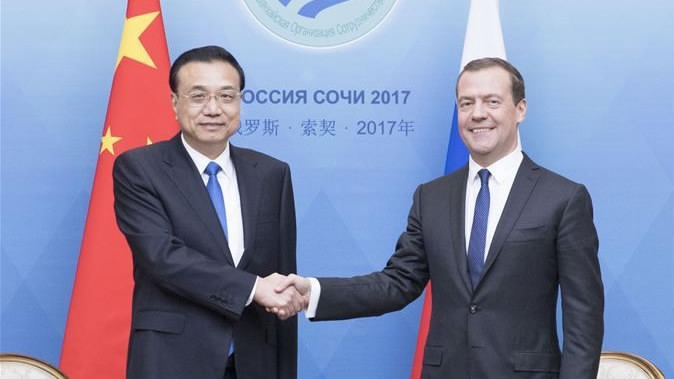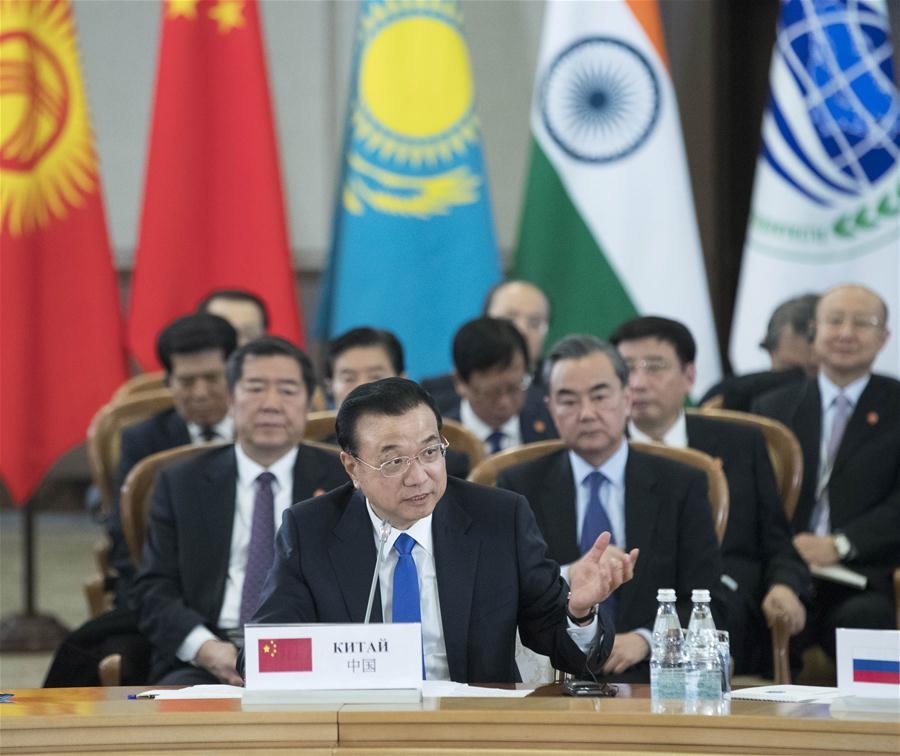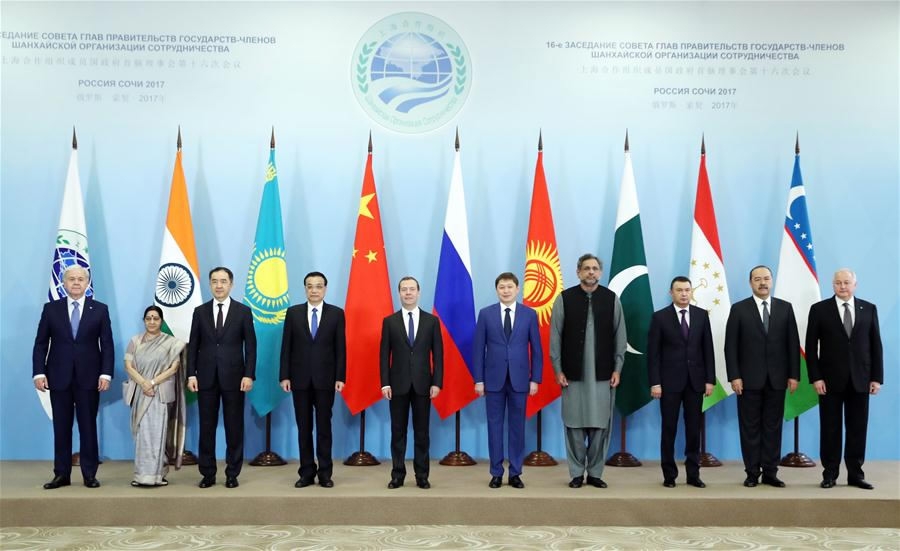
Opinions
15:20, 03-Dec-2017
Opinion: In Sochi, Russia, China give diplomacy masterclass
Guest commentary by Dmitry Babich

It was very symbolic that Chinese Premier Li Keqiang came to the meeting with his Eurasian colleagues in Sochi after visiting Eastern Europe where he was at the center of attention. “Central and Eastern Europe is becoming a sphere of China’s preferential interest,” wrote the Moscow-based intellectual daily Nezavisimaya Gazeta (Independent Newspaper).
In Budapest, Li had been attending the sixth meeting of heads of government of China-Central and Eastern European (CEE) countries. In Sochi, Russia, the Chinese premier was the main figure at the meeting of prime ministers of member states of the Shanghai Cooperation Organization (SCO) and the organization’s Eurasian partners.

Chinese Premier Li Keqiang speaks at the 16th meeting of the Council of the Shanghai Cooperation Organization (SCO) Heads of Government (Prime Ministers) in Sochi, Russia, December 1. /Xinhua Photo
Chinese Premier Li Keqiang speaks at the 16th meeting of the Council of the Shanghai Cooperation Organization (SCO) Heads of Government (Prime Ministers) in Sochi, Russia, December 1. /Xinhua Photo
In Sochi, Li was met by a pack of characters very different from his audience in Budapest – Russia’s Prime Minister Dmitry Medvedev, the heads of governments of Central Asian states, India’s foreign minister and a representative of Pakistan (both India and Pakistan became SCO members in June). There was someone in Sochi, whom it was just impossible to imagine in Budapest, talking as an equal to European diplomats – a representative of Iran, the country that has the status of an observer with the SCO.
Li met these very different audiences, offering numerous deals and even more encouragement to everyone. The message from China as it was understood in both Moscow and Budapest: The “peaceful rise” of China is beneficial for everyone; China’s attitude is non-confrontational.
Talking to Li was a welcome change for Russia’s foreign policy planners, who in the last three to four years have been getting accustomed to a confrontational attitude from both the United States and the European Union.

Chinese Premier Li Keqiang (4th L) stands with other leaders and officials at the Shanghai Cooperation Organization (SCO) summit in Sochi December 1, 2017. /Xinhua Photo
Chinese Premier Li Keqiang (4th L) stands with other leaders and officials at the Shanghai Cooperation Organization (SCO) summit in Sochi December 1, 2017. /Xinhua Photo
“All of our trade deals with the US and the EU, we get them through a lot of effort, a lot of fighting,” Russia’s President Vladimir Putin acknowledged during one of his famous annual “phone-in sessions” with the nation after the deterioration of Russia’s relations with the West in the aftermath of the “regime change” in Ukraine in 2014.
Russia’s Prime Minister Dmitry Medvedev took upon himself the duties of a tour guide, giving Li a tour of the Olympic objects in Sochi, where the winter Olympic Games of 2014 took place. Now Russia is facing the prospect of its Olympic team not being allowed to go to the coming games in South Korea because of doping accusations. Russian public opinion views the perspective of a prohibition very negatively, considering the accusations of the World Anti-Doping Agency (WADA), dominated by Anglo-Saxons, as politically motivated and basically unfair. So far, Russia’s and China’s athletic ambitions have been developing hand in hand, with China having hosted the 2008 games and the Chinese athletes showing greater and greater results in sports that had been for decades dominated by Soviet, American and German athletes.
“I was impressed by the quality of Russia’s sporting infrastructure in Sochi,” Li told Russian reporters, again warming the Russians’ hearts. In fact, it is not difficult to warm them. If such a statement came from an American or British official, he might be scolded at home for praising a “hostile state” (this was the definition UK Prime Minister Theresa May chose for Russia).
My impression is that the member states of SCO are pushed towards each other by the growing diplomatic inadequacy of the leadership of certain Western countries (one could cite the US and the UK as examples). In this situation, even India and Pakistan crack up to be rational enough to overcome their differences and join one and the same organization – SCO. India and China may have differences on certain issues but they lay those differences aside when talking about joint threats and challenges. And joint threats and challenges were exactly the themes of the discussions in Sochi – with terrorism, as usual, being singled out as the main threat to all of the SCO’s member states.
This kind of attitude could be a good lesson to certain Western countries, especially those who put the “threat” of “newly assertive China and Russia” even before the threat of terrorism.
(Dmitry Babich is a political analyst with the Moscow-based Sputnik International. The article reflects his opinions and not necessarily those of CGTN.)

SITEMAP
Copyright © 2018 CGTN. Beijing ICP prepared NO.16065310-3
Copyright © 2018 CGTN. Beijing ICP prepared NO.16065310-3